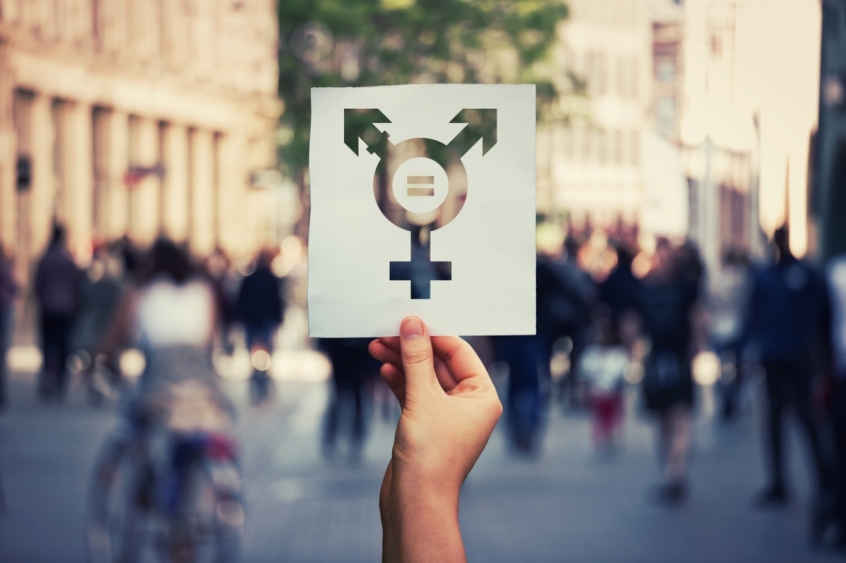
In the Queen's Speech delivered on her behalf by the Prince of Wales on 10 May this year it was announced that 'Legislation will also be introduced to ban conversion therapy.' This legislation would cover England and Wales and according to the background briefing notes to the speech issued by the Prime Minister's office, the purpose of the legislation would be to 'Ban conversion therapy practices intended to change sexual practice.'
The briefing notes also explain that the legislation would involve:
'Strengthening existing criminal law by ensuring that violent conversion therapy is recognised as a potential aggravating factor upon sentencing.
Introducing a criminal offence banning non-physical conversion therapies to complement existing legislation which protects people from acts which inflict physical harm. The offence will protect under-18s, regardless of circumstance, and over-18s who do not consent and who are coerced or forced to undergo conversion therapy practices.
Ensuring those found guilty of conversion therapy offences have any profit they obtained from those crimes removed and strengthening the case for such individuals to be disqualified from holding a senior role in a charity.
Introducing Conversion Therapy Protection Orders. These would set out certain conditions to protect a person from undergoing the practice, including removing a passport for those at risk of being taken abroad, or any requirement the court considers necessary to protect that person.'
To say that this proposed legislation is controversial would be an understatement. There are passionate opinions both for and against it. On the one hand there are those who think that a ban on conversion therapy is long overdue and who would argue that it needs to include a ban on conversion therapy practices relating to gender identity. On the other hand, there are those who feel that a ban is unnecessary and would endanger personal, clinical, and religious freedom.
How then should we view the prospect of a ban on conversion therapy from a Christian perspective?
We need to begin by thinking about what it means to live rightly as a human being. The Christian faith teaches us that to live rightly as a human being means to respond rightly to the grace of God.
The grace of God is the love of God shown to those who have done nothing to deserve it. We see this grace at work in the way that God has created us out of nothing when he had no obligation to do so and in the way that he bestowed new life on us through Christ and the Spirit when through our rebellion against him we had fallen under the power of sin and death.
Living rightly as a human being means living in the light of this double grace. It means being set free to live a life of love for God and neighbour that reflects the truth about who we are as people whom God has created and upon whom he has bestowed new life, so that in the world to come we might live with God forever in a restored creation and thus fulfil the purpose for which we were made.
The fact that we have received the grace of God does not mean that we can henceforth live the way we are called to live without any difficulty. On the contrary, the Bible and the mainstream Christian tradition following the Bible, both insist that this path is a difficult one. Assaults by the Devil and the continuing influence of our old fallen natures means that our lives will always be what Jonathan Grant has called an 'oscillating narrative.'
That is to say, there will not be a smooth path of ever increasing holiness in which everything goes in the way we desire. It will be a journey full of ups and downs, of sorrows and disappointments, in which we constantly let God down and must constantly receive his forgiveness and seek his strength to do better in future.
As Paul notes in Romans 8:25, living through all the ups and downs of our present life involves hope and patience: 'But if we hope for what we do not see, we wait for it with patience.' We do yet see, in the sense of present experience, the total and complete victory over sin which God has promised us. However, because of what God has done through Christ, we confidently hope that this victory will one day happen and that we shall participate in it.
Because we have this hope, we can be patient in the face of our current difficulties in the conviction that, as Paul puts it elsewhere, 'this slight momentary affliction is preparing for us an eternal weight of glory beyond comparison' (2 Corinthians 4:17). What will be, will make our present afflictions worthwhile.
Part of loving our neighbours involves helping them to live in the way which I have just described. This means offering them help through prayer, teaching, advice, and emotional support and, if it is necessary and if we are equipped to offer it, offering them more specialised forms of help if they are facing particular difficulties because of their personal circumstances or family backgrounds, or because they have mental health issues which lead them to behave in ungodly ways (for example, addiction to alcohol, gambling, or pornography).
What is never permissible, however, is to try to force people to live rightly through the threat or application or physical force, or through the use of drugs or psychological manipulation. Such activities go against the inherent dignity of human beings as those made in God's image and likeness (Genesis 1:26-27) and even if they were successful in affecting an individual's behaviour, they could never bring about that willing response to God's double grace that is fundamental to living rightly as a human being. By its very nature a willing response must involve free and informed consent. We must genuinely want to live God's way.
From a traditional Christian perspective, it is this big picture of what living rightly involves that provides the proper framework for thinking about the particular cases of people who experience same-sex sexual attraction or who struggle with their sexual identity.
God's revelation of his purposes for humanity through the natural order, and through Scripture and the witness to Scripture borne by the orthodox Christian tradition, teach us that God created human beings as creatures who are either male or female depending on their biology (Genesis 1:26-27), that human bodies are created to have sex with members of the opposite sex and thereby fulfil God's command to 'be fruitful and multiply' (Genesis 1:28), and that God has instituted marriage between one man and one woman as the proper context for sexual intercourse and the begetting of children (Genesis 2:18-25).
Living according to God's double grace means accepting these truths and learning to live in accordance with them even if we find that this is something that is very difficult to do. As in the case of anyone else, helping people to live in this way involves giving them the general and more specialised help previously described. However, for the reasons already given, it cannot involve any form of physical coercion or psychological manipulation. Just like anyone else, those with same-sex sexual attraction or sexual identity problems need to have the freedom to willingly respond to the grace of God. They too must genuinely want to live God's way.
In relation to the current disputes about conversion therapy, what all this means is that Christians should agree that any form of physical coercion or psychological manipulation of people with same-sex sexual attraction or difficulties with their sexual identity is wrong in principle and should not be permitted.
What they cannot agree however, is that they should not be permitted to help these people to live rightly before God through prayer, teaching, advice, emotional support and specialised forms of counselling and therapy, if necessary, always providing that such help is not forced upon people. In the face of such activity being banned, the teaching of Acts 5:29, 'We must obey God rather men,' would come into play and so disobedience to such a ban would be called for.
While the precise content of the Government's proposed legislation remains undecided, Christians need to work and pray in order to ensure that such a blanket ban will not be introduced. In a letter to the Evangelical Alliance last year, the Prime Minister declared, 'I do not want to see clergy and church members criminalised for normal non coercive activity.' Christians must take him at his word and press for him and his government to act upon it.
Martin Davie is a lay Anglican theologian and Associate Tutor in Doctrine at Wycliffe Hall, Oxford.













